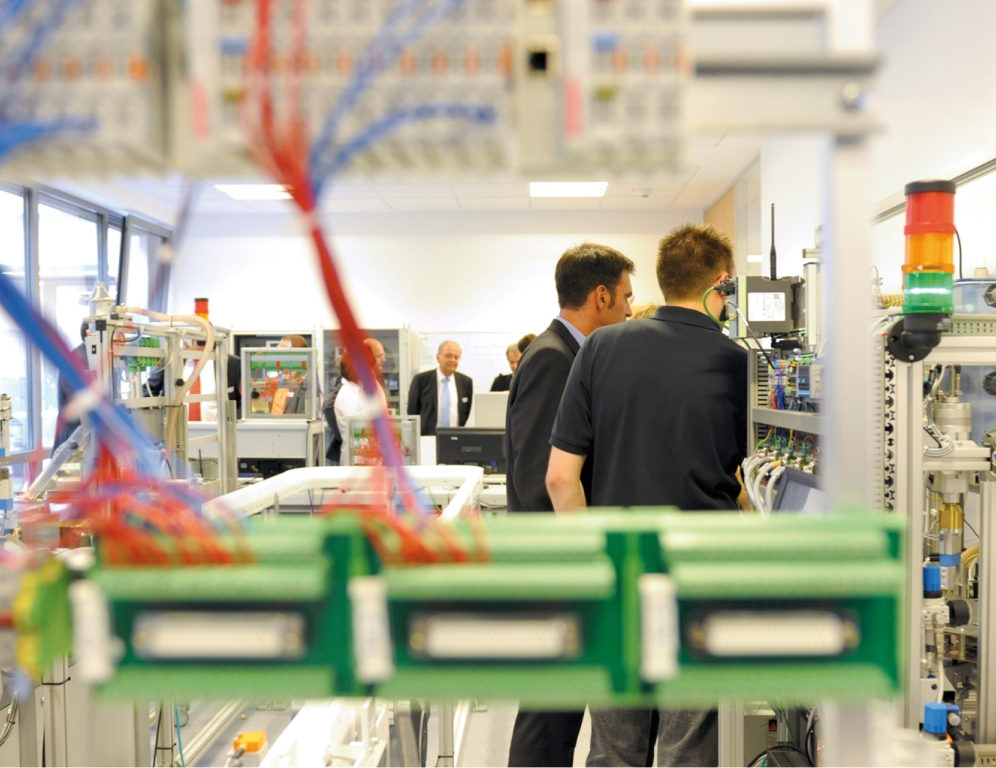Research Focus
The ability to build more and more efficient production plants is a key element of the world's economical future. E.g. just in Europe, manufacturing provides jobs for around 34 million people and produces an added value exceeding 1 500 billion Euros from 230 000 enterprises. And within the manufacturing sector, automation systems are a key driver of innovation and competitiveness.
These automation systems are nowadays complex systems of software, hardware and communication system. But exactly this increasing integration of information technology, and also challenging requirements stemming from more complex products, increase the complexity of automation systems continuously. This leads to an excessive demand of the involved people with the result of a decreasing work efficiency. To counter this situation, a new generation of automation systems must be developed. The goal is the reduce the demand on the people by increasing the intelligence of the automation systems. For this, new methods from the fields of computer science, control engineering and artificial intelligence are required. This development is often summarized as Cyber-Physical Production Systems.
Such Cyber-Physical Production Systems are characterized by abilities such as self-organization, self-configuration, self-diagnosis and self-optimization. In order to implement these capabilities, research will be conducted by this graduate school in the following areas:
- formalization of human know-how for the planning and operation of automation systems
- new control engineering approaches
- new concepts for transparent communication systems between all system components (Internet-of-Things)
- assistent systems for an improved engineering process for automation systems
- machine learning methods for the monitoring and diagnosis of production systems
- optimization methods for the automatic improvement of resource consumptions and other plant performance indicators

